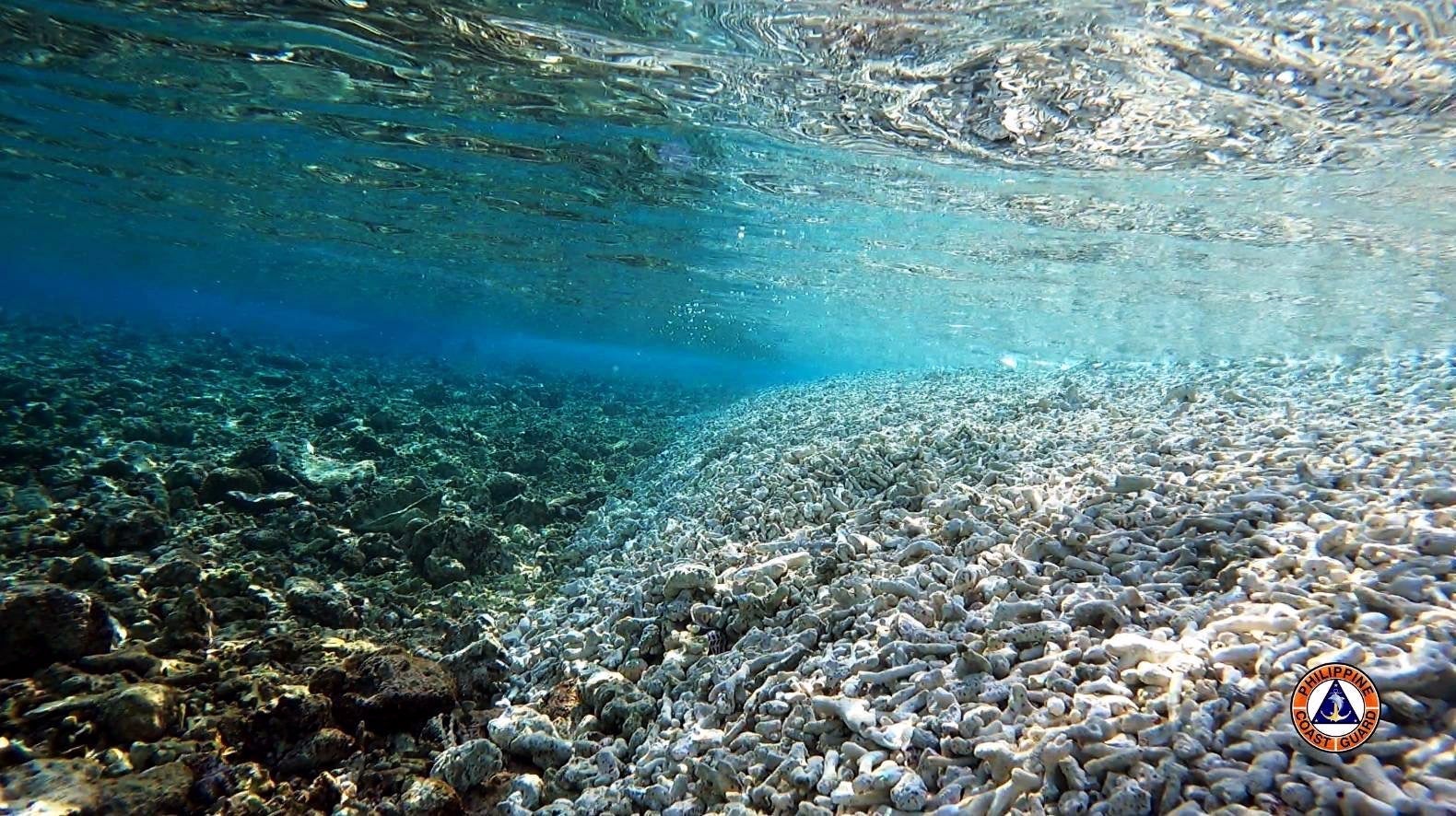China flatly denied late Thursday accusations by some quarters in the Philippines that destroying coral reef beds in the West Philippine Sea was the handiwork of its militia vessels.
Chinese Foreign Ministry spokesperson Mao Ning directed scathing words at Manila, saying the allegations raised by the Philippines had “no factual basis” and were nothing more than “political drama from fiction.”
The Department of Foreign Affairs had yet to respond at press time to Mao’s reaction to the plan of the Office of the Solicitor General to again file a complaint against China before the Permanent Court of Arbitration or PCA.
The DFA said it was “awaiting our relevant agencies’ assessment of the environmental damage in Rozul Reef.”
Citing Article 192 of the United Nations Convention on the Law of the Sea and the 2016 Arbitral Award on the South China Sea, the DFA said states must protect and preserve the marine environment within and beyond their national jurisdiction.
“States entering the Philippines’ EEZ and maritime zones, therefore, are likewise obliged to protect and preserve our marine environment,” it said. The DFA likewise noted the OSG’s plan to explore legal options about the coral devastation in the WPS.
“The DFA stands ready to contribute to this effort and will be guided by the OSG on these matters,” it said.
‘Drama from fiction’
“The Philippines’ accusations have no factual basis. We urge relevant parties in the Philippines to stop creating political drama from fiction,” Mao said.
Beijing also blasted Manila over its concern about the environmental impact of the destruction of corals in the West Philippine Sea. According to Mao, the Philippines should have towed away the “rusting” BRP Sierra Madre that was polluting Ayungin Shoal.
“If the Philippines truly cares about the ecological environment of the South China Sea, it should tow away the illegally grounded warship at Ren’ai Jiao as soon as possible, stop it from discharging polluted water into the ocean, and not let the rusting warship bring irrevocable harm to the ocean,” Mao said.
Reclamation suspected
The BRP Sierra Madre, a World War 2-era ship, was run aground at Ayungin Shoal in 1999 to serve as the permanent station of the Philippine military. The ship’s grounding was in response to what the Philippines had maintained was China’s illegal occupation of Panganiban Reef in 1995.
The OSG said it was studying the reports by the Philippine Navy and the Philippine Coast Guard that corals at Rozul Reef and Escoda Shoal, both located in the WPS, had been pillaged. The coral devastation was discovered after Chinese vessels had swarmed Rozul and Escoda for weeks.
However, Defense Secretary Gilberto Teodoro said on Thursday that they were still verifying if China had a hand in the apparent harvesting of corals in the WPS.
Senate President Juan Miguel Zubiri, on the other hand, warned that the destruction of the reefs may be in preparation for more reclamation activities by China in the WPS, which it did years ago in the Spratlys Group of Islands, particularly at the Fiery Cross, Subi, Mischief, Johnson South, Cuarteron, Gave and Hughes reefs.
The artificial islands now serve as Chinese military outposts with airstrips, radar stations, and missile sites.
The OSG plan to once again run to the Permanent Court of Arbitration in The Hague apparently touched raw nerves in Beijing. And with reason.
Aided by foreign lawyers, the OSG in 2013 disputed before the PCA China’s claim to nearly the entire South China Sea, with the arbitral court affirming in 2016 the Philippines’ 200-nautical mile exclusive economic zone entitlement in the WPS.
At the same time, the PCA declared that China’s territorial claim over the South China Sea — based on its nine-dash line that enveloped not only the WPS but also areas claimed by Malaysia, Taiwan, Brunei and Vietnam — had no basis.
